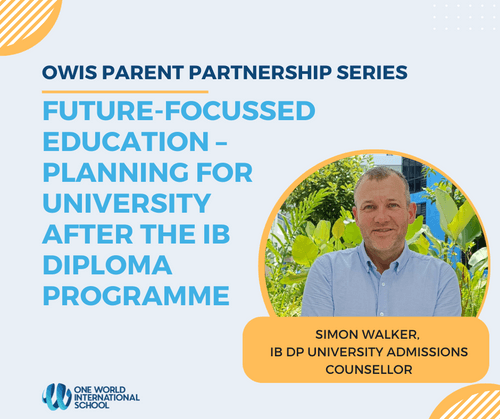The process of educating a child involves more than just instilling knowledge and arming them with information. It’s about transforming a young learner into a responsible and empathetic individual who is willing to persevere, rise to the occasion and lead with integrity. This is why character education plays a critical role in any learning environment.
Why Is It Important to Teach Character Education?
Before you begin delving into the importance of character education in schools, you need to know what it is and why it is becoming increasingly necessary in today’s global world.
According to TeachHub, character education is the process of intentionally teaching principles and values as part of the classroom curriculum to enhance personality development in all students. The goal of character education is to create well-rounded individuals who rely on their personal values to guide them in every aspect of their lives.
Here are a few reasons why it’s important to focus on building students’ character:
It Helps Students Understand and Manage Their Emotions
At its core, character education introduces students to a vast range of experiences, feelings and emotions, ultimately helping them understand how they are feeling and why they are feeling that way. Once students identify their emotions, they can learn to manage them effectively. Rather than feeling overcome by anger or frustration or burdened by sadness, students can learn actionable skills through character building programmes that help them manage these feelings in a productive way.
Students Learn How to Set Attainable Goals

Perseverance and resilience are important components of most character development initiatives in schools, particularly at an age when students can easily get frustrated or overwhelmed. To cultivate these attributes, character education programmes often include goal-setting lessons. Through these programmes, students learn how they can create both short-term and long-term goals as long as those goals are realistic and attainable. They typically work to identify the steps needed to reach those goals, and they learn through experience how to bounce back when they encounter failure or disappointment. The skill of goal-setting is necessary at all professional levels and across all industries, making this a pivotal component of character development in schools.
It Emphasises the Power of Empathy
In a world where kindness and understanding are needed more than ever, it’s critical that students develop a sense of empathy during their formative years. When students are able to recognise the feelings of others and imagine a worldview through another’s perspective, they are able to make well-rounded choices that take into account the greater good.
It may seem as if it’s challenging to teach a concept like empathy, but in reality, there are many steps that teachers can take to instil this value in their students. One of the best ways to incorporate empathy into a character-building programme is to explore it through reading and literature. Students who connect with the characters in a book or short story are able to see the world through their eyes and begin to develop an appreciation of how they might be feeling in a given circumstance.
Students can develop this pivotal attribute by becoming aware of what it means to be empathetic and practising empathy in the classroom setting.
It Teaches Students to Make Thoughtful, Responsible Decisions
One of the most beneficial components of any character-building programme is that it enhances and improves students’ decision-making skills. Young learners often begin making decisions in a way that benefits them at that moment. Each choice feels like a black-and-white decision. However, through character education, students see that their choices impact the world around them. They see that their values and worldview have an impact on their choices. As they begin to understand this and hone their sense of empathy, they make more thoughtful decisions. They will consider various aspects of the choice, ponder the potential outcomes and make a decision that will be best for the community rather than just themselves.
It Helps Students Create Meaningful and Lasting Relationships
When students are immersed in a holistic learning environment, where their strengths are celebrated and they learn to appreciate the beauty of diversity, they will be more apt to connect with their peers in a meaningful way. A values-based education has been shown to improve a child’s ability to make friends, compromise and collaborate with their classmates.
What Are the Objectives of Character Education?
The specific objectives of character education may vary from one curriculum or programme to the next, but generally speaking, the purpose of character education is to promote whole-child development from an early age.
According to Character Counts, some examples of character education objectives include:
- Developing a solid set of principles and a sense of morality in all learners.
- Allowing students to make better, more responsible decisions.
- Demonstrating the importance of integrity in the real-world setting.
- Teaching students the importance of holding themselves and others accountable for their actions.
- Showcasing the need for compassion in everyday life.
- Highlighting the importance of civic duty and social responsibility.
Character Education at OWIS Singapore

At OWIS Nanyang, we have been providing our students with a values-based education since 2018. As an IB World School, we are anchored by the IB curriculum and supported by our holistic framework. We are proud that our students exemplify many of the traits included in the IB Learner Profile.
The IB Learner Profile at OWIS Nanyang
The IB Learner Profile consists of ten attributes that the curriculum focuses on:
At One World International School Nanyang Campus, we are able to effectively develop these attributes in our students because of our commitment to a holistic learning environment.
Students enjoy being in open-concept classrooms, where discussion plays a critical role in classroom life and project-based learning is the norm. Our hands-on, skills-based lessons allow our students to learn the importance of taking risks, the power of asking questions and the need for reflection during the learning process.
Of course, our multicultural community naturally cultivates students who are aware, empathetic and open-minded. Not only do they recognise the important role that religion, tradition, culture and community play in a person’s life, but they also appreciate the different perspectives and values that can be discovered in a multicultural environment.
You can request our Admissions Team for more information about character development at OWIS Singapore, and schedule your campus tour today.















